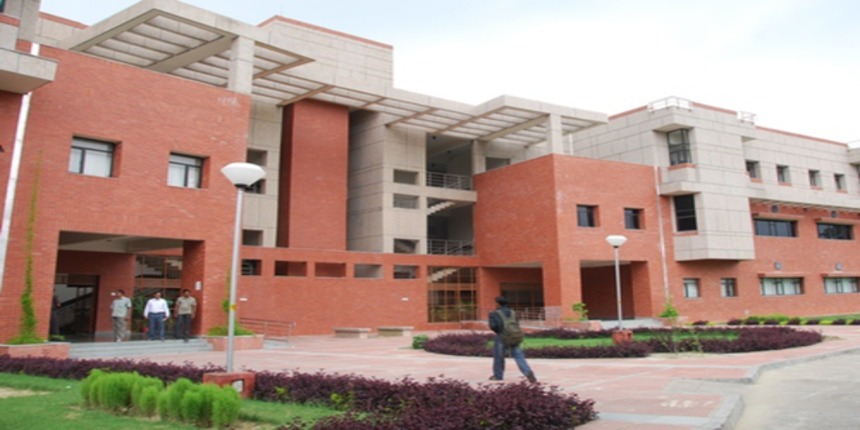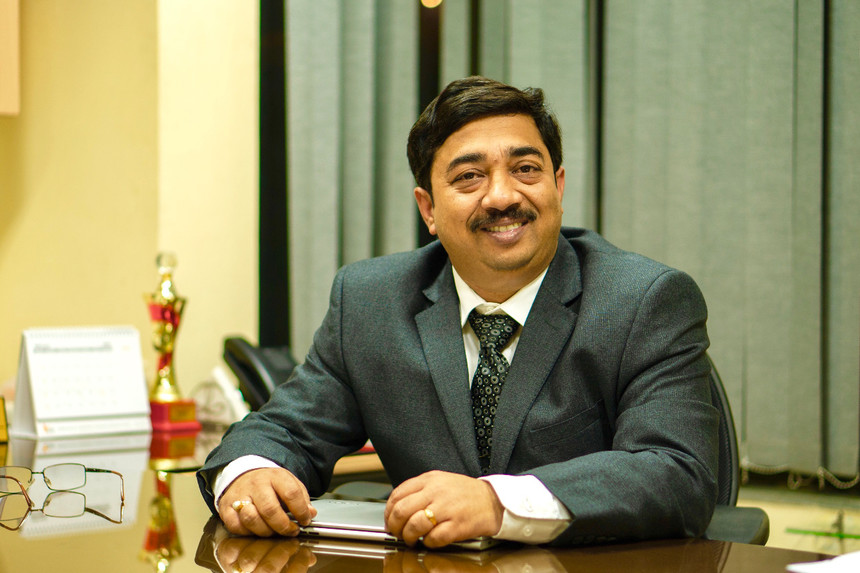COVID-19: An IIT Kanpur team designed a low-cost ventilator in a week
Pritha Roy Choudhury | March 27, 2020 | 07:16 PM IST | 4 mins read

NEW DELHI: Academics and researchers based at the Indian Institute of Technology-Kanpur have developed a low-cost ventilator that could come for Rs 75,000 where imported ones cost anywhere between Rs 4 lakh and Rs 9 lakh. They began work on March 22 when the novel coronavirus was already spreading rapidly. Less than a week later, the team of academics, students and doctors had a prototype.
Developed by a start-up incubated at the SIDBI Innovation and Incubation Centre, or SIIC, at IIT Kanpur, it awaits approval by the government. It is also getting vetted and they will know the results in 36 hours. If all the necessary clearances are obtained, they could start production as early as April 10. Amitabh Bandopadhyay from the Department of Biological Science and Bio-engineering and the professor in charge of SIIC spoke to Careers360 about invasive ventilators in general and developing their prototype.
Can you please tell us about the ventilator you are working on to address the COVID-19 crisis?
So, what we are working on is the invasive ventilator. The invasive ventilator responds to the lung capacity of the patients. These are the sophisticated ventilators that you see in sophisticated hospitals but these will involve lots of imported parts etc. So what we have done, we worked with some doctors to figure out what are the must-haves and what are the good-to-have features in a ventilator. So we came to know that the must have features included that must respond to the lung capacity of the patients. So that is what is being developed. We have tried the prototype on an artificial lung. What we are now going to do is to seek the help of a couple of biomedical engineers to understand and ensure that the design is fool-proof and safe.
Next we will approach the government for rapid approval. This is a company funded by the Indian Angel Network (IAN). We have funds from multiple sources to roll it out so that we can do rapid scale-up.
The steps involve finalising the design from the perspective of safety, approval from government authorities, mass manufacturing possibility in multiple locations.
When do you go ahead with the mass manufacturing of the ventilators?
The prototype would be vetted within the next 36 hours. The next step is the government-approval process. And in that I have no control. If they understand the urgency and do it within a couple of days, we can go ahead with the mass production on the third day. If they stick to it for a month then I don't know.
 Amitabh Bandopadhyay
Amitabh Bandopadhyay
Can you explain how your prototype works?
It is not a make shift ventilator by any stretch of imagination. This is a real ventilator. So what this ventilator does is this: it will suck air and deliver it at a given pressure to an opening which is called the ‘envo treacha’s tube’. This ‘envo treacha’s tube’ is inserted within the trachea. And then from there it will diffuse into the lungs. Now the problem is that the lung is like a balloon. There are certain regions of the lungs which will be absolutely non-responsive. So the air will try to take the path of least resistance and escape from there, and hence it is important to ramp up the pressure.
What does the invasive ventilator actually do?
For most of the viral diseases, we are not supposed to take antibiotics. One needs to take only paracetamol to keep the temperature down and one’s immune system eventually cures the viral disease. Here also it is the same thing. It is just that the viral infection makes the lung incapable of breathing. If you can keep the lung artificially breathing, the immune system will kill the virus. The ventilator is not a treatment, it is only to keep the person alive.
If you can talk about the money involved, the cost?
A typical imported ventilator costs somewhere around Rs 4 to 9 lakh. Now I am told that China has discounted the price. This one should not cost more than Rs 75,000.
How many students of IIT Kanpur are involved in it?
Four students are involved. They are Nikhil Kurele, Harshit Rathode, Usha Agarwal and Abhisehk Kulkarni. After completing their B.Tech from IIT Knpur, they all associated with the incubator in IIT Kanpur.
What about the doctors? Who all did you work with?
A core member of the IIT Kanpur incubation team there is Dr Deepak Padmanabhan, electrophysiologist, with Sri Jayadeva Institute of Cardiovascular Sciences and Research in Bengaluru. I also roped in Dr A K Singh of Regency Hospital Kanpur.
Correction: An earlier version had said the company was funded by "India's angel-network". That has now been corrected.
Also read:
- Thanks to the coronavirus, public universities embrace online teaching
- Covid-19: Medical colleges in small cities are preparing for corona
Write to us at news@careers360.com.
Follow us for the latest education news on colleges and universities, admission, courses, exams, research, education policies, study abroad and more..
To get in touch, write to us at news@careers360.com.